INESC TEC celebrates International Day of Women and Girls in Science
In 2016, the UN established the International Day of Women and Girls in Science, which is celebrated on 11 February. The goal is to give more visibility to women and to promote an equal access to science.
This year, we could not fail to notice this date. Promoting a campaign on Facebook, Twitter and Instagram, we have shown some of INESC TEC’s female scientists, what they do, their ideas. Because it was not possible to show all of them, we have chosen 13 of them, one for each research centre at INESC TEC.
In Portugal, women represent 45% of the total of researchers, but internationally only 28% of researchers are female – there are still many countries where equal access and women’s right to science are not a given.
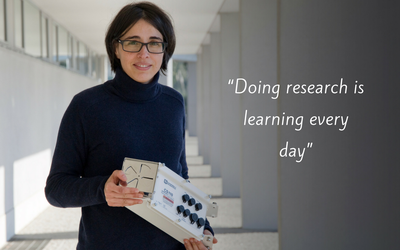 |
Susana Barbosa conducts research in the field of geophysical data analysis. To encourage the participation of women in scientists, she defends that “the work of female scientists should be disseminated in schools (we must lead by example!)”. |
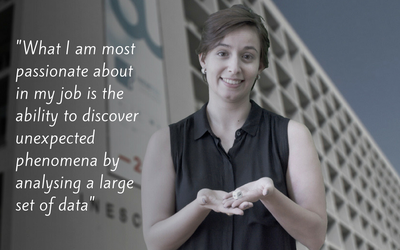 |
Joana Corte Real does research in Probabilistic Inductive Logic Programming, a technique used to analyse data with a degree of uncertainty. "The change I would like to see for women in scientific research would be a better participation (and not just greater) in science. We should work more with our male colleagues and not be the victims of some type of discrimination in our workplace based on our gender, which is something I see on a daily basis", she states. |
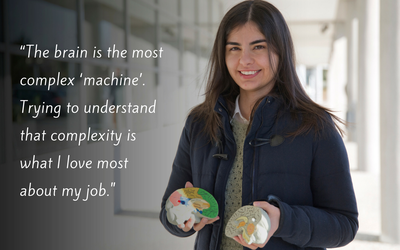 |
Nádia Silva works in neuroscience. About the participation of women in science, she states that “gender diversity encourages new ideas. Opening science to men only is limiting the room for new solutions.” |
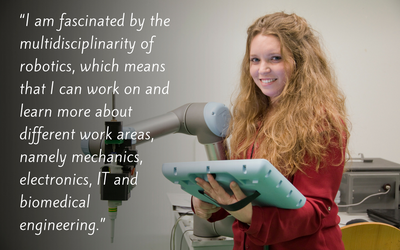 |
Cláudia Rocha conducts research in the field of industrial robotics for mechanical modelling projects. “It would be interesting to create workshops, fairs, traineeships or study tours specifically for young women, in order to inform them about the different scientific areas”, she states. |
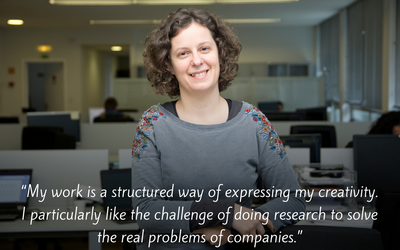 |
Alexandra Marques has been working in operations planning for the last 15 years. “Equal opportunities and access to science are recent achievements. Now it’s an "accepted fact” but it’s good to remember (and appreciate) that that was not always the case. It’s still not the case in some places in the world. I think that an increased participation of women in science will lead to new measures that will allow us to balance the professional and personal spheres more effectively”, she states. |
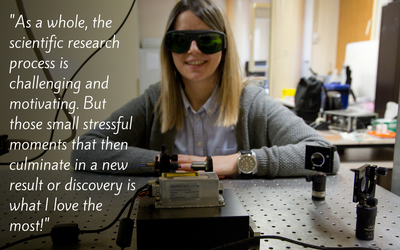 |
Ana Rita Ribeiro develops optical fibres with special characteristics that make it possible to capture and manipulate cells. The researcher stresses that, in Portugal, recent statistics indicate that about 45% of researchers are women. However, “it’s important to pay attention to things that happen unconsciously on a daily basis that may somehow affect the way both men and women play certain roles in their institutions.” |
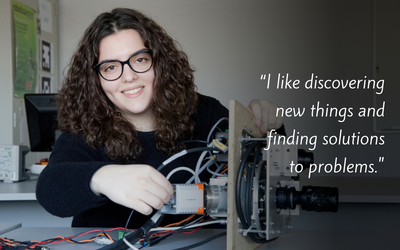 |
Sara Freitas works in the field of Robotics – Autonomous Systems. Currently, she is working on a hyperspectral camera, a device capable of reading the “signature” of the materials it observes. Sara believes that “science needs people who are passionate about constant evolution, regardless of their gender. It is thanks to people with these characteristics that science can evolve rapidly, as we have witnessed in the last few years.” |
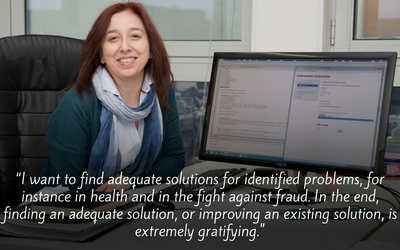 |
Conceição Rocha conducts research in the fields of text mining, modelling and statistical analysis. She believes that “the trend over the last decades shows that the increase in the number of women in science will occur naturally.” |
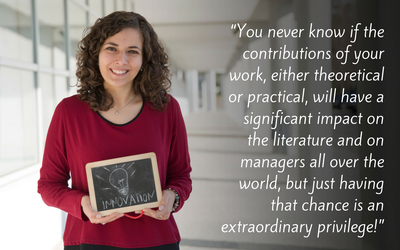 |
Sara Neves works in Innovation, Strategy and Service Management, and for her doing research in these areas is a challenge. |
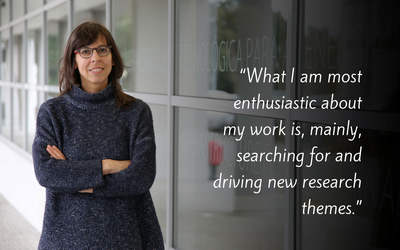 |
Ana Viana conducts research in Industrial Engineering and Management. “Science needs ALL of us, men and women. What’s important is that we all have the same incentives and opportunities, which also means gender equality in all hierarchy levels,” she states. |
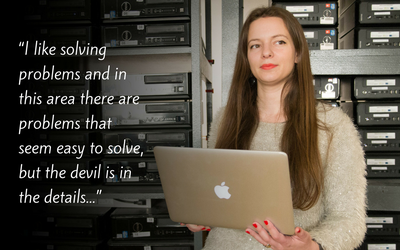 |
Ana Alonso works in Distributed Systems. To increase the participation of women in science/scientific research, she believes that “the younger generations should not only know that there is a place (and recognition) for women in science, but also the contributions of women like Marie Curie, Ada Lovelace, Grace Hopper, and others. |
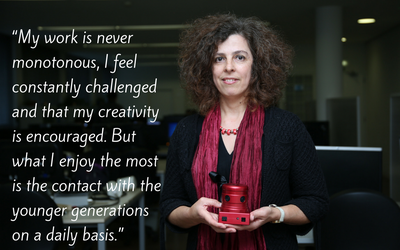 |
Paula Viana conducts research in Multimedia Communication Technology/Digital Media. According to her, women should be encouraged to work in science from very early on. “There should be a law preventing toy stores from separating areas for boys and girls; people should give Legos and technology games to girls; the good work of female scientists should be highlighted and those good examples should be shown to younger generations” – these are some of the suggestions of the researcher, suggestions that she tries to follow whenever she cans. “On 10 February [today], I’m going to my kids’ school to tell their colleagues about my job. I could be a ‘Teacher’ or an ‘Engineer’. But I will tell them I’m a “Scientist”. I hope that my story encourages Joana, Alexandra, Marta, or Isabel, to become successful Portuguese scientists.” |
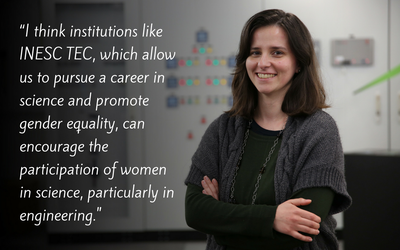 |
Clara Gouveia Moura develops solutions for smart grids, taking into consideration the integration of renewable energy sources and distributed energy storage in electric distribution networks. When asked about what she is most passionate in her work, she stated that “it is the possibility of solving existing problems or problems that may occur in the medium or long-term. Above all, the work here at INESC TEC is very dynamic and challenging, and we can work together with other research institutions and companies.” |


